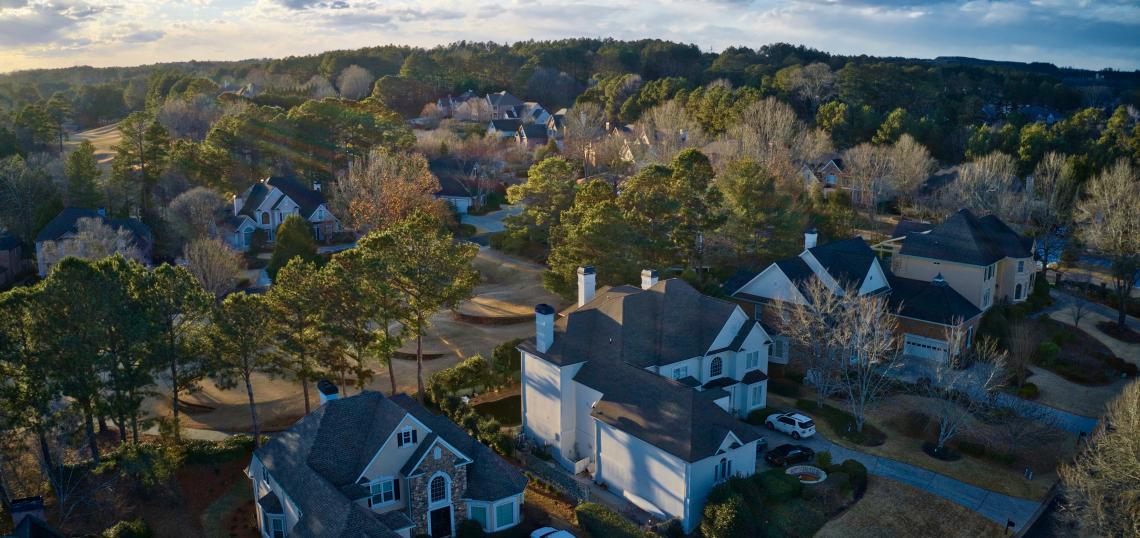If you’re a devout intowner who’s watched new residential communities and vast, mixed-use projects sprout with unrelenting regularity over the past year, a recent AJC headline—"Push to suburbs fuels demand for homes”—may have triggered a bit of head-scratching.
The newspaper profiled an Atlanta native and Chastain Park resident who’s decamping for bucolic Milton, fed up with congestion, crime, and that claustrophobic feeling of living on a mere half-acre in the city.
His case was called evidence of a trend “among a growing number of homeowners who will move to the metro suburbs in coming years,” freed by teleworking from daily commutes into the big city and a newfound liberation to live anywhere.
Anecdotally, it's safe to say most Atlantans have probably seen evidence of that in the past year and a ½.
There’s a diehard Midtown resident who uprooted to Milton, a longtime East Lake adherent who also fled for Milton’s pastures, and a former East Atlanta Village ambassador who’s thinking his next greener pastures are in Chamblee.
Does that constitute an exodus?
A study of rental applications in April showed the City of Atlanta had experienced an influx of people in 2020 from places like New York and Chicago, in addition to suburbs such as Marietta. But does the flow of Atlantans leaving the city outweigh all of that?
It remains a tough answer to pin down.
We checked this week with Coldwell Banker Real Estate, whose analysts have been studying trends in metro Atlanta. “Apparently, the MLS data is not comprehensive and couldn’t be pulled to refute or confirm” the notion of a suburban exodus in Atlanta, a spokesperson replied via email.
According to the most recent Census estimates, the City of Atlanta’s population had climbed to 506,000 as of July 2019. (The city’s land mass, after all, is just a sliver of metro Atlanta.) That’s the most people living in Atlanta proper in its history. But of course, that estimation came before the curveball that was 2020.
While signs of market cooling have recently been spotted across most of the metro, Redfin noted in June that median home prices within Atlanta city limits had ballooned by more than 23 percent over the past year. Average time on market had been slashed by more than half to 20 days, while median sales prices for all neighborhoods had climbed above $400,000. Hardly sounds like a town full of tumbleweeds.
Whatever the case, all signs say the reenergized boom of Atlanta’s suburbs during the “great reset” is real, with thousands of new houses sprouting around the metro since the doldrums of early 2020.
In Gwinnett County, for example, single-family home and townhome construction is on pace to eclipse numbers set in 2018 and 2019, while permits for individual homes have already beat all of those tallied in 2020, the AJC found.
With its proximity to MARTA and burgeoning downtown, ITP Chamblee’s population has exploded by more than 200 percent since 2010, with another massive project proposing 700 houses, apartments, and townhomes in the pipeline.
One factor for residential growth away from Atlanta's core, as a Traton Homes principal told the newspaper, is that living a hip, walkable lifestyle doesn’t always entail paying Buckhead, Vinings, or Midtown prices these days. “The downtown environments created in cities like Duluth, Marietta, and Suwanee,” the AJC wrote, “have convinced younger crowds to live outside the city.”
• Push to suburbs fuels demand for homes (AJC)
• Letter to Editor: East Atlanta ‘former hipster’ seeks advice on where to live next (Urbanize Atlanta)
Lead photo via Shutterstock






